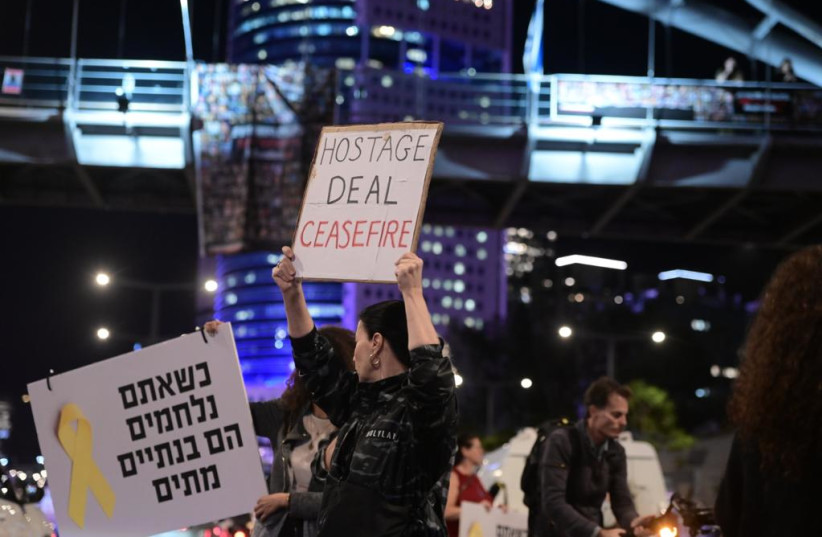Hamas could be expelled from Qatar if deal not reached
The Wall Street Journal published an interview with Senior Hamas official Husam Badran on Saturday, discussing Hamas’s hard-line stance of only agreeing to a permanent ceasefire and shedding light on details of the negotiation process that are lesser known to the public.
Badran begins the interview by claiming that Hamas is still willing to negotiate a ceasefire deal, saying claims of Hamas disinterest come from Israel and America. “We didn’t declare negotiations have been stopped. We are the party most keen to stop this war,” he said.
According to Egyptian and Hamas officials, Qatar has threatened to expel Hamas officially from their base in Doha if they don’t come to an agreement, but Badran denied this claim.
That being said, he stated that Hamas’s official position is still a permanent ceasefire and allowing displaced Gazans to return to their homes.
As far as the negotiation process goes, he revealed that the discussion of swaps of Israeli hostages for Palestinian prisoners has taken a back seat to relieving the humanitarian situation and ending the fighting.

He blamed Israeli Prime Minister Benjamin Netanyahu for the failure of the talks so far. “The only complication in the negotiations is Netanyahu’s stance, who refuses to deal with anything on the table,” he said. “Netanyahu is the most dangerous [person] for the stability of this region. He is the fire starter.”
He also claimed that he was “concerned” about rising tensions in the West Bank if a deal is not reached before Ramadan. Later on in the report, however, he revealed that Hamas met in Moscow with other Palestinian officials, including secular politicians and the PIJ, where they agreed to “expand operations in the West Bank and Jerusalem.”
The report had details of the negotiation process from statements by Israeli, US, and Arab officials as well, but didn’t name them.
Other mediators are hoping for a short-term ceasefire with partial hostage releases
It said that unspecified Arab negotiators were aiming for an urgent two-day ceasefire before the beginning of Ramadan due to increased operations in Rafah.
The report also claimed that Arab mediators are trying to salvage a proposal that involves a 40-day ceasefire and the release of around 40 hostages.
According to the report, Egyptian officials said that they had hoped to resume talks on Saturday, but neither side was being cooperative. Arab mediators have also confirmed, according to the report, that Hamas has refused to give Israel a list of living hostages as part of a deal.
Badran denied that claim, saying there had been no official Israeli request for such a list. He said many of the prisoners are held by other factions, including Palestinian Islamic Jihad, making them harder to locate and guarantee as part of a deal.
The report also talked about Hamas leader Yahya Sinwar, who recently broke his radio silence and has also made demands about a potential deal.
Sinwar believes Hamas currently has the upper hand in negotiations, according to Egyptian officials. They based this claim on internal political divisions within Israel, disagreements within Netanyahu’s wartime government, and mounting US pressure on Israel to do more to alleviate the suffering of Gazans.
Arab and Israeli officials said that they fear that Sinwar is deliberately undermining the talks in the hope that Ramadan will galvanize popular Arab support for Hamas and that there will be an escalation of tensions in the West Bank and Jerusalem.





Comments are closed.